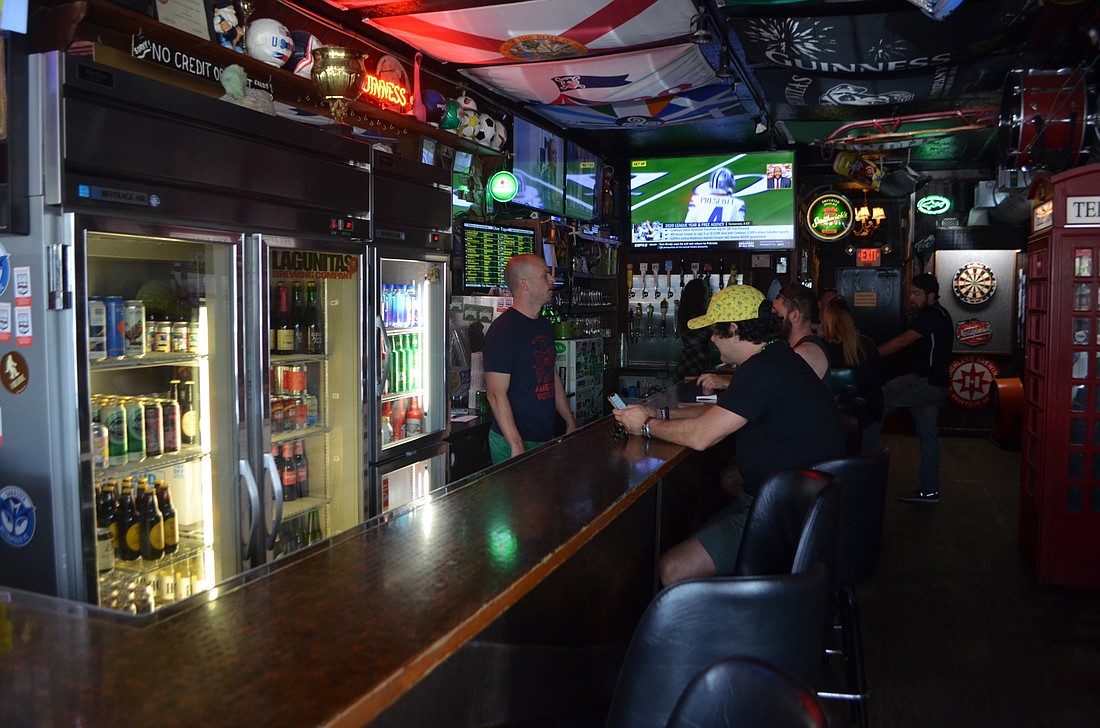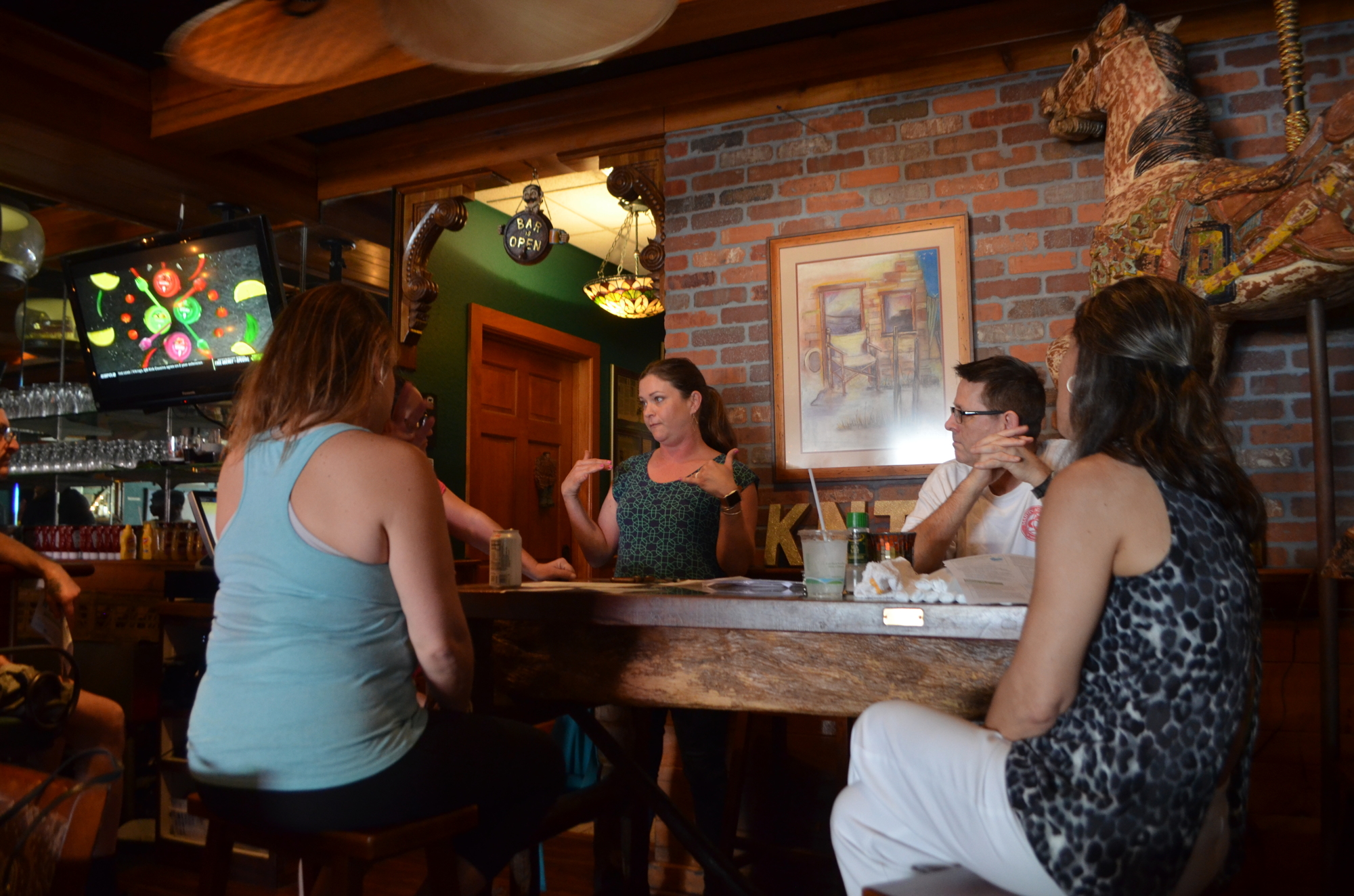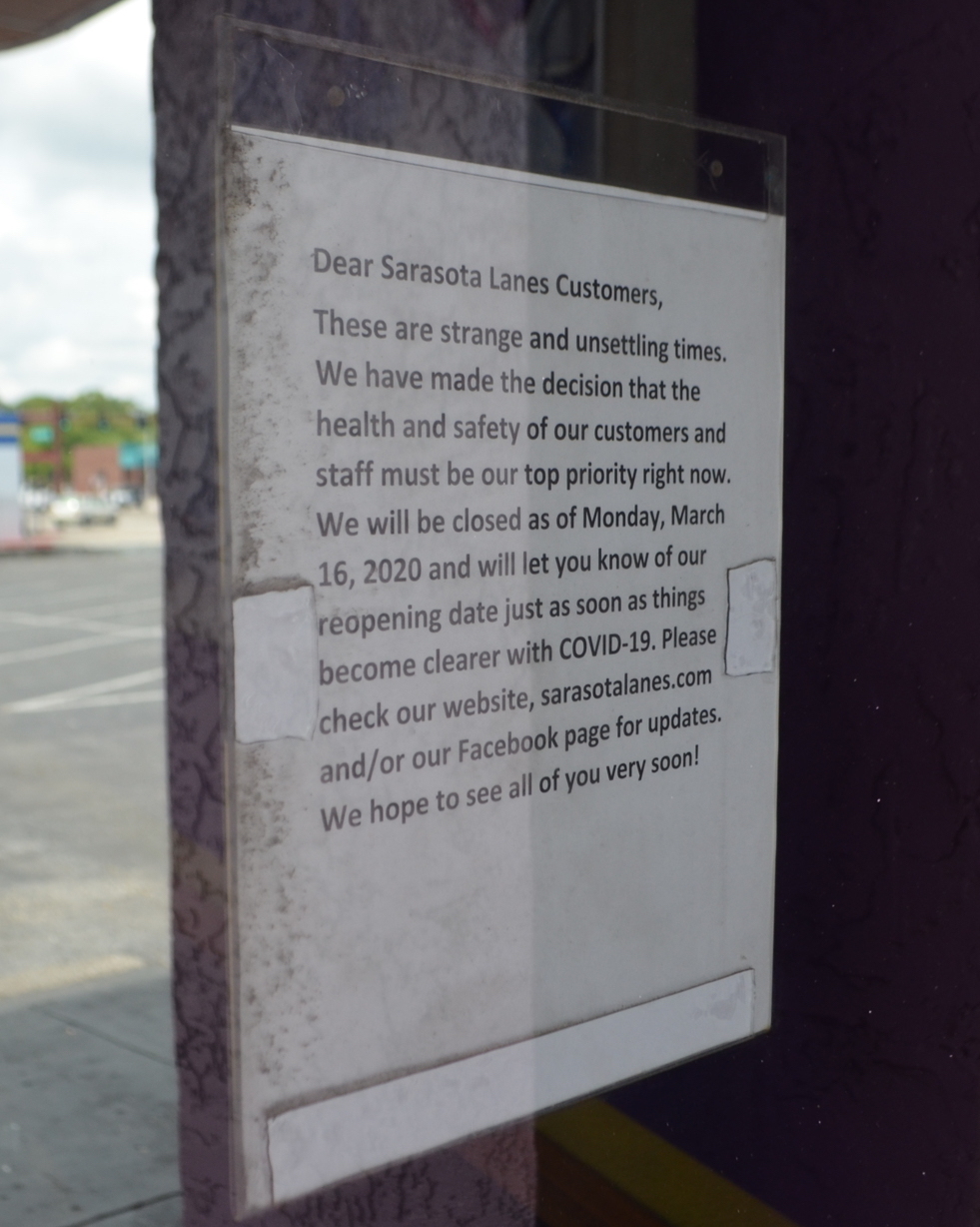- November 19, 2024
-
-
Loading

Loading

St. Patrick’s Day is, unsurprisingly, traditionally a strong day for business at Shamrock Pub on Ringling Boulevard.
For more than a decade, hundreds of attendees have descended on the bar every March 17 for a daylong outdoor block party that features musical performances, food vendors and more. But this year, when Shamrock opened at 2 p.m. Tuesday, there was no tent or stage outside. About a dozen people were at the bar or sitting on the patio, but the pub was closed just three hours later.
The block party was canceled over the weekend after a statewide recommendation against mass gatherings because of COVID-19. Then, on Tuesday, Gov. Ron DeSantis ordered the closure of all bars and nightclubs for the next 30 days, effective at 5 p.m. March 17.
Shamrock Owner Derek Anderson said he was speechless at how the events leading up to St. Patrick’s Day played out. Beyond the single-day loss of business, Anderson said his No. 1 concern was making sure the five people who work at the pub were in a stable place during the closure.
“We can hang on for 30 days,” he said. “Beyond that, we’re going to take it one day at a time.”
Anderson is one of many business proprietors who has, over the course of about a week, been forced to confront a new and challenging reality for himself and his employees. The loss of business isn’t only affecting bars. Restaurants, too, are reporting a significant decline in business, and a state order is forcing them to operate at 50% capacity. Restaurant owners know a mandatory shutdown of their businesses is also a plausible scenario, and many are bracing for the worst.
On Monday, Knick’s Tavern & Grill owner Knickole Barger held a staff meeting at the Southside Village restaurant to discuss the business’s plans as the community responds to the global spread of COVID-19. Barger went over safety and cleanliness protocol — tables were to be staggered to ensure groups were seated at least 6 feet apart, workers needed to wash their hands regularly — before moving onto the financial uncertainty the workers faced.

Barger said the restaurant is setting up curbside pickup and exploring the possibility of adding delivery service to try to do as much business as possible. Barger said if Knick’s had to close, she could afford to pay employees’ average wages for two weeks.
“Everybody’s asking: ‘What are you going to do? Are you closing?’” Barger said. “We can’t close.”
Indigenous Restaurant Chef and owner Steve Phelps said he started to notice the effect coronavirus was having on his business the beginning of the week of March 11. Phelps said the first sign of drop-off came from tourists in the form of canceled reservations, but a slowdown became more noticeable over the weekend.
Like Barger, Phelps and others are exploring opportunities for new income streams or continuing to drive customers to their restaurants. Although Indigenous has traditionally focused on dine-in customers, he’s developing a carry-out menu and a curbside pickup system. On Main Street, Made Restaurant owner and Executive Chef Mark Woodruff said he would offer a 10% discount for all customers and 20% off for those in the service industry.
Phelps said he worked through some conflicting feelings about continuing to operate in the face of a global public health challenge. He’s ensuring tables are adequately spaced and encouraging customers to buy gift cards to support businesses if they’re not comfortable going into a restaurant.
Phelps echoed the sentiment of business operators who said their focus was the welfare of workers. Even if businesses don’t close, the number of customers are down, and hourly shifts are being cut.
“I’m hoping the government can start paying attention to the lower income people right now,” Phelps said.

And the effects expand beyond the food and beverage industry. Sarasota Lanes, the bowling alley on Fruitville Road, voluntarily closed to the public Monday.
Owner Tom Hubbard said he sensed that was the best direction based on guidance from the state and federal government. With about 15 employees, Hubbard said he would be looking to state and federal opportunities for assistance.
Hubbard described the coronavirus response as a uniquely challenging scenario in the history of Sarasota Lanes, which has been open since the 1950s and in family ownership for nearly five decades. But despite the difficulty of freezing operations, Hubbard said he felt obligated to protect the safety of the regular customers, many of whom are older and vulnerable to the effects of the disease.
“They become part of our family,” Hubbard said. “We’ve got to keep them safe.”